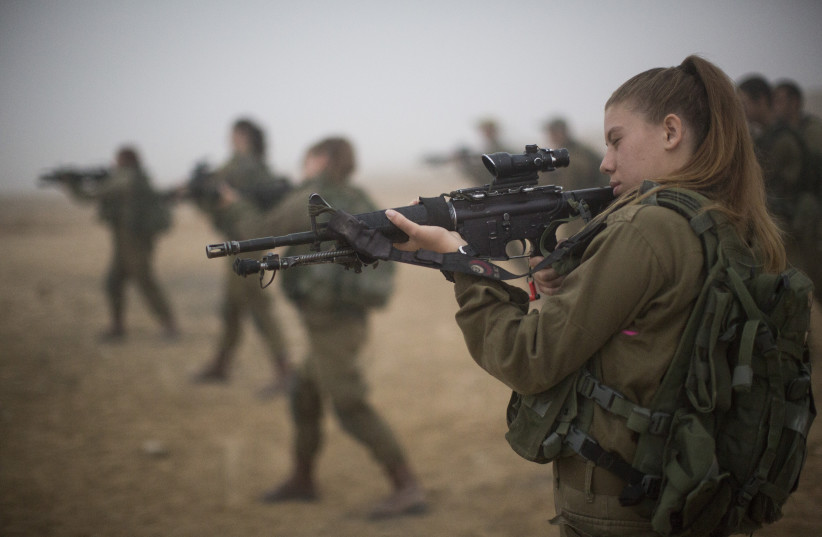A record number of recruits have joined combat units this summer, IDF Chief of Staff Lt.-Gen. Aviv Kohavi has said.
“Motivation for service in combat units has improved, and in the past two years there has been a continuous increase in willingness to serve in combat units,” Kohavi said at a ceremony Tuesday marking the change of command for IDF Ground Forces.
The increase in recruitment to combat units was “particularly pronounced” during the most recent draft cycle in August, which saw “the highest figures in the past seven years,” Kohavi said.
The military has in recent years been working to increase the motivation of young Israelis to join the IDF, especially in combat roles. The drop in motivation to serve in combat roles is due to many new recruits preferring instead to serve closer to home and in technology roles or cyberdefense.
The high numbers, Kohavi said, “testify to the readiness and sense of mission that the recruits have, and are an expression of the work of Ground Forces commanders who are working on the issue.”

Over the years, the ground forces were neglected as the military and political leadership chose instead to focus on and prioritize more cyber and intelligence capabilities. The military also reduced the size of its combat infantry forces following the decision to reduce the length of compulsory military service.
In 2018, former IDF Ombudsman Maj.-Gen. (res.) Yitzhak Brick harshly criticized the military’s organizational culture, the neglect of training with the reserves in particular, and the worrisome condition of the Ground Forces.
In his scathing report to the Security Cabinet and the Knesset Foreign Affairs and Defense Committee, he charged that the situation in the IDF was “worse than it was at the time of the Yom Kippur War” in 1973.
Ground Forces have also been rarely used for the past two decades to maneuver deeply in enemy territory and capture territory, including during recent wars in the Gaza Strip where troops are used in a cautious and limited manner.
Kohavi frequently talks about modernizing the Ground Forces and deploying them should they be needed.
“The test of war is not what capabilities we use, through maneuvering or fire, but the results we achieve. When we need to activate a maneuver, we will activate it and we will invade enemy territory firmly and bring about victory,” Kohavi said at the ceremony at Tel Nof Air Force Base on Tuesday that saw Maj.-Gen. Tamir Yadai take over the Ground Forces from Maj.-Gen. Yoel Strick, who has served in the role for the past two and half years.
In an interview with Haaretz before finishing his role, Strick said that ground troops will be used when it “serves the war’s goals.”
According to Strick, the IDF invested NIS 200 million in building new training facilities for reserve units with the intention of having reserve combat units spend more time training and less time in routine operational deployment. There will also be NIS 1.2 billion for training Ground Forces in the budget for 2022, he said.
Last week, Defense Minister Benny Gantz said that a record number of Bedouin have voluntarily drafted into the military over the past year.
“In the past year, we have continued the upward trend in the recruitment of Bedouin to the IDF, with more than 600 conscripts, and we continue to work to increase the number,” he said at a ceremony marking the role of Bedouin in Israeli security forces.
